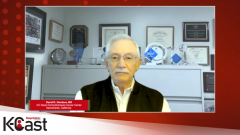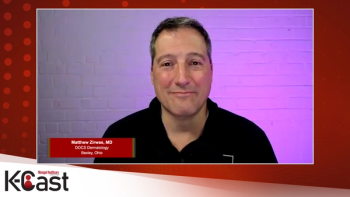
The Economic Value of Comprehensive Genomic Profiling
A review of how comprehensive genomic profiling can better inform treatment planning and alleviate health care economic burden.
Episodes in this series

Transcript:
David R. Gandara, MD: The issue of cost-effectiveness is important when we talk about molecular testing. Everyone—not only oncologists and oncology organizations but also payers, including Medicare and private insurers in the United States—have all realized that it’s better for the patient and more cost-effective to do your broad testing up front. The example I give is that there are several ways you could do testing. In the old days, we did sequential testing. We tested for EGFR or KRAS. If that was negative, then we tested sequentially. Then there was so-called multiplexing or hot spot testing. We would test for a limited number of oncogenes.
Now we have next-generation sequencing and comprehensive genomic profiling. In the example of non–small cell lung cancer, which is a poster child, several studies have shown that it’s more cost-effective to test for all the genes up front simultaneously with next-generation sequencing than it is using sequentially or exclusion testing where, you exclude certain abnormalities before you go to next-generation sequencing. This has been shown to be the same in blood—that it’s more cost-effective in blood to do next-generation sequencing.
This was nicely shown in a presentation by Natasha Leighl from Toronto, Canada, and the Canadian system at our annual International Society for Liquid Biopsy Congress. She described what they have named the value study, which showed an analysis that you could save a lot of dollars by employing next-generation sequencing in blood up front. Insurers understand that they’re not paying individually for 500 genes. They’re paying for a result that is practice changing. The decision-making process for that patient will turn on its heel if 1 of the actionable oncogenes is found.
I’ve had many examples in my clinic. Within the last week, a patient was referred to me with fairly rapid disease, the patient had a remote history of smoking. I recommended instead of starting chemotherapy and immunotherapy to get next-generation sequencing in blood, because of the faster turnaround time. Within 1 week, an ALK translocation was found. The patient was started on appropriate therapy within 3 days of starting that therapy. The patient reported to me—we have a chart; that’s how you communicate—that his shortness of breath, his chest pain had almost completely gone away within 72 hours. This is like turning off a light switch. If you don’t find that target, this same patient has been proven in studies to do poorly with immunotherapy. Typically, we exclude patients with EGFR mutation: the other nonsmoker-related oncogenes from initial treatment with immunotherapy. This is a practical example of why this is important, and insurers understand that. It used to be that we would get disapprovals left and right when we order next-generation sequencing. Where I practice in California, that essentially never happens anymore.
Transcript edited for clarity.
Newsletter
Get the latest industry news, event updates, and more from Managed healthcare Executive.




















